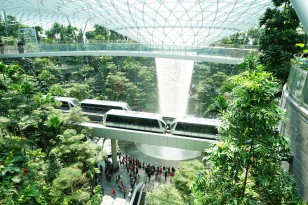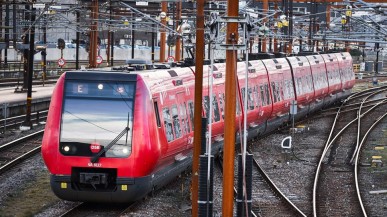Zigurat Global Institute of Technology
Blog / Disruptive Technologies
Urban Development: The smart city project in Hamburg
Categories

Case Study and Q&A with Joe Hopper, founder of the Smart City Hamburg Project.
 Smart City Hamburg is an initiative driven by the desire face the global challenges of high urbanization rates, increasing demand of energy and resources, outdated infrastructures and technological changes. Joe Hopper, Management Consultant @SCALIAN and founder of the project Smart City Hamburg, answers our most pressing questions about Smart Cities and urban development:
Smart City Hamburg is an initiative driven by the desire face the global challenges of high urbanization rates, increasing demand of energy and resources, outdated infrastructures and technological changes. Joe Hopper, Management Consultant @SCALIAN and founder of the project Smart City Hamburg, answers our most pressing questions about Smart Cities and urban development:
Dear Joe, this project seems to need great efforts. Could you explain what motivated you to start this Smart City Project?
Professional and political reasons led me to take on this issue. I knew how to setup complex industrial and systematic structures with interrelated systems that provide not only commodities and services, but also ensure the maintenance and growth of requirements necessary to keep a system operating under optimal conditions. At the same time, our city as with others, is facing a high number of demanding challenges in the next years to come. Numerous studies predict a scenario where our world faces drastic demographic changes with high urbanisation rates, increasing demand in energy and resources, outdated infrastructures and technological changes. Everything at a breath-taking pace. And considering the already complex nature of cities as described above, developing and implementing adequate solutions becomes an even more demanding task. Smart city Hamburg is an initiative that targets for the realisation of this goal by acting as an eye-opener for potential bottlenecks and collaborative platform to bring forward adequate business cases and city changing solutions.
How much time did you need to make this project a reality and who helped you carry out all its phases? How important were the citizens and the community that you created?
The idea to carry bottom-up focused smart city initiatives into a large community such as Hamburg was already in my mind for a longer time. The time between the idea gaining traction and going live on social media platforms took approximately 4 weeks. After only a couple of weeks the number of registered members skyrocketed. Thus my first workshop emerged after another approximately 3 weeks. After 1 year and 3 workshops later with the group already having over 700 members, I realized that I needed a partner. After doing some interviews I merged with the Hamburg Transport Association in the course of their project of developing intelligent and sustainable mobility concepts. Naturally the entire community is the backbone of Smart city Hamburg. Not only because they bring forward problems and talk over solutions during round-table discussions but also because the community itself creates a lot of buzz, which raises awareness.
Was the public administration important in this process? What is the role of SCH in relation to its municipality?
The public administration played no role in the creation of the Smart City Hamburg initiative. Nevertheless, we invite politicians as representatives from the public administration such as organizations and the local population as to create synergy effects. The role of Smart City Hamburg from a pragmatic point of view is that of a working and collaboration platform to bring forward business cases and city changing solutions.
What's your definition of a smart city? And what are the main characteristics of a Smart city?
To my standards a smart city includes key players and the use of technological and non-technological innovations and measurements. It is able to react to economical, ecological, social, technological and political challenges in the future, to create a sustainable, social inclusionary, green, mobile and technological advanced city. A very important aspect would be the appropriate placement of Key Performance Indicators, to measure, for example, the efficiency by which certain resources (water or energy) are provided and used or how efficient public waste is managed. A smart city is developed for continuous adaption and better service provisions and puts every community on a safer journey of becoming a smarter and demand-oriented city.
Which is the role of professionals? I mean, how architects, designer, urban planner, engineers could be involved?
Everyone interested and able to add value to the successful creation of a smart city. I consider the development of smart cities to be a very interdisciplinary field, one specific skills does not exist, but rather a versatile pool of specialists is needed.
At Zigurat, we usually use these sentences to promote our Smart City Master program: “We need trained professionals, aware companies and receptive governments.” Would you agree?
I would completely agree. A lot of work needs to be done by our governments. The growth of our cities outrun the time it takes to put forward adequate solutions, which then again, require a certain educational output. There should be more emphasis on managing human capital. It would be a wise move, to include relevant subjects (open data, infrastructural development, ecological development, etc.) into the curriculum of schools, as early as possible. This would also secure matching the requirements that companies seek. Interested in participating in Smart City projects? Jumpstart your career with our Master's in Smart Cities.




